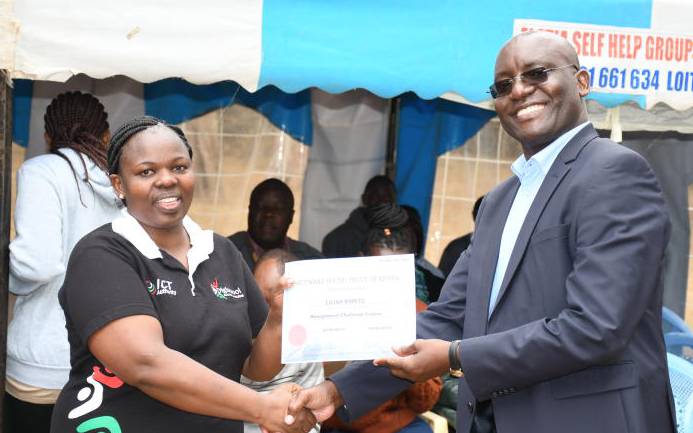×
The Standard e-Paper
Home To Bold Columnists

Lilian Kimetto (left), Director of Communications at Authority receives a certificate from Outward Bound Trust of Kenya Chief Executive Officer Michael Yugi after completing the module on experiential training at Outward Bound Mountain School in Kajiado County. [Michael Chepkwony, Standard]
Hundreds of kilometres away from their posh offices, top officials in national and county governments endure the cold weather at the foot of Mt Kilimanjaro in Oloitoktok, Kajiado County.